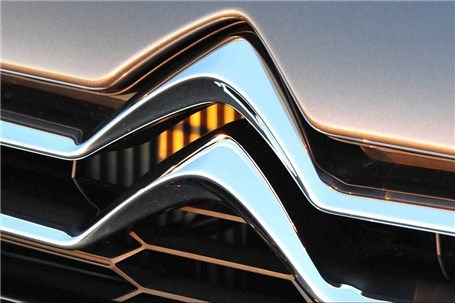
- Sunday 09 October 2016 - 13:33:00
Iran Targets 80% Auto Localization
Asre Khodro: The Iranian government has targeted an automotive localization rate of 80%, following several overseas evaluations of the quality of domestic components, reliable sources close to car producer SAIPA, Iran’s second largest car company, said.
Reporting "Asre Khodro", Iranian automakers have long focused on boosting the quality and capacity of auto parts manufacturing, instead of relying on foreign producers. This was strengthened during successive years of western sanctions imposed on the country, with the government increasing support for local parts makers as of 2013.
Iran’s Minister of Industries, Mining and Trade Mohammed Reza Nematzadeh recently told British magazine Just Auto that a minimum automotive content would start at 40%, but the goal is to raise this across the industry to an eventual 80%.
The move has been welcomed by observers with knowledge of SAIPA, which only last week concluded a production deal with Citroen to produce several new vehicles in Iran.
“French automakers evaluated parts makers in Iran and estimated their capacities,” the source said.
According to the source, Pars Khodro, a subsidiary of SAIPA, is capable of producing parts and has been doing so for the parent company for several years.
“We have evaluated and accredited our parts makers. Right now they [Citroen] have assured 40% of cars can be produced with high quality and probably they are evaluating more parts makers to increase localization,” the source said.
The 50/50 SAIPA-Citroen joint venture will cover the entire value chain, from the design stage through to vehicle marketing. Manufacturing will take place at the Kashan plant in Iran, which will be 50% owned by the PSA Group.
The JV will invest more than €300 million ($329 million) in manufacturing and R&D during the next five years, with the agreement reinforced by technology transfers and a significant level of local content. It will take effect after the signing of the final agreement scheduled for late 2016.
The first Citroen vehicle is expected to roll from Pars Khodro’s Kashan plant in 2018.
It appears that the French side is largely financing the deal that will use SAIPA’s plant and workforce, while Citroen will bring its automotive expertise to bear with the new products.
“After the Islamic Revolution in Iran, there has been a very good relationship between SAIPA and Citroen. We have produced several cars from Citroen,” the SAIPA source said.
“Citroen would not let us produce any of their models unless they were confident of the product’s quality.”
With its three world-renowned brands, namely Peugeot, Citroen and DS, the PSA Group sold 3 million vehicles worldwide in 2015. The second largest carmaker in Europe, PSA Group, recorded sales and revenues of €54 billion in 2015.
The group confirmed its European leadership in terms of controlling carbon dioxide emissions to an average of 104.4 grams of carbon dioxide/km in 2015.
Founded in 1966, SAIPA is the second-largest car manufacturer in the Middle East and North Africa, and one of the 20 largest automakers worldwide. With a 40% market share in Iran, the company exports its products to 21 countries, leveraging manufacturing facilities across the four continents.
Source: financialtribune.com
- Iran Automotive Industry
$2 Billion Aid Package to Bolster Automotive Industry
Renault to Return to Iran: Deputy Minister
Auto supplier Duerr stops Iran business due to sanctions: Boersen-Zeitung
Customs barriers have prevented the growth of localization
M&M plans SUV foray into Iran
Automotive Industry in Iran, a short review
Iran’s Car Industry and the Localization Conjectures
Automakers are forced to implement new car standards
Removing some price ranges from the car market
Complete privatization; First Iran Khodro and Saipa after that
Construction of Chinese-Persian car in Semnan
France to update firms on doing business with Iran
S. Africa-Iran Business Forum Next Week
Iran, Turkey to Hold Meeting of Joint Economic Commission Next Month
French Businesses, Officials to Preempt American JCPOA Walkout
Lack of Iran Khodro Capital Impedes Peugeot Plans
Auto Parts Makers Demand Tougher Regulations on Imports
Istanbul Automechanika Conference with the participation of the senior director of the exhibition
European carmakers on the road back to Iran after nuclear deal
Car from the new minister's perspective
Iran Automakers Need Logistical Spread
Iran Auto Output: All That Clamor for Naught
French Leverage in Iran Auto Industry
Iran Industrial Agency Kicks Starts Another Car Factory
Iran Automotive Production Up 20% y/y
With Sanctions Behind, Iran Looks Ahead
Iran Carmakers Obliged to Offer 2-Year Guarantees
Iran Auto Companies Not Raising Prices
Iran to hit two car industry accords soon
Turkey keen on investment in Iran's auto industry
PSA to carry out Iran plans despite US threats
Peugeot, Citroen Will Uphold Localization Segment in Iran
Iran to release Euro V passenger cars next year
Production surges in Iran's car industry
Iran Khodro Group Retains 39% Market Share
Iran to sign 5 auto deals with intl. companies by Mar. 20
Iran talks with Germany’s VW to produce passenger car
Car Import only through Investment
Iran’s Vehicle Initial Quality Study Released
Iran has potential to be top-10 auto market by 2020
Iranian, Turkish companies discuss auto parts Coop.
The 4th Vehicle Conference "Sales and After-sales Service Approach”
Iran Car Sales Slump Despite Loans
Iran’s Auto Import Report by MSD
Effects of Automotive Ties With China
Faurecia builds on Iran ties to secure major deals - CEO
Renault signs MoU with Iran to create new joint venture
Peugeot to try for making Iran its manufacturing hub in Middle East, Africa
Iran to ink new deals with foreign automakers
Pakistan-Iran cooperation in auto sector discussed
Iran to open car factory in Azerbaijan
Auto Sector Recovery to Buoy Steel Consumption
New Automotive Decisions Announced
Iran's Automotive Advantages
Friends with many benefits
Encouraging foreign investment to revitalize Iran’s car industry - expert
Iranian car output down 2.5% Y/Y
Algeria-Iran: 15 cooperation and agreements for automotive industry
Automotive Targets Highlighted
How to seize Iran’s automotive opportunities
VW In Iran
Iran ranked 13th in world passenger cars sales of 2015
Bavaria eyes major auto supplier potential with Iran
Plans Devised to Make Iran Region’s Top Automaker: Minister
Iran Seeks Foreign Partnerships to Boost Auto Industry
Volvo on the Final Decision to Manufacture Car in Chabahar
3rd Iran Automotive Industry Int'l Confab opens in Tehran
Iran Inks 3 MoUs with Foreign Carmakers
Iran signs three deals with foreign automakers
Iran to become a hub for automotive manufacturing: OICA President
Iran, Germany Ink MoU to Boost Cooperation in Automotive Industry
How Iranian Cars Are Viewed Around the Region
Peugeot to Compensate for Iran’s Losses in New Contract: Minister
Minister Calls for Japanese Automakers’ Investment in Iran
Iran seeking Japanese investment in autos, water
Iran in Talks with Germany, Italy to Boost Cooperation in Automotive Industry
Three Europe carmakers to return to Iran soon
Iran to become world's 8th automotive manufacturer
Iran suspends car loan programme on soaring demand
Iran to export 30% of domestically produced cars
French firms trail in economic rush to Iran - executive
Iran interested in cooperating with German, Italian carmakers
Nematzadeh defends automotive sector
Changing Automotive Perception
Italy to broaden cooperation on auto industry with Iran
Iran: The next automotive hotspot in Middle East?
Iran's car market ready to zoom in on the action
Japan explores opportunities in Iran's auto industry
Thailand hopes for boost in trade with Iran after sanctions get lifted
Controversial Vehicle Price Surge in Iran
IKCO management handed over to consortium of non-governmental shareholders
Iran's government approved car import after four years
$2 Billion Aid Package to Bolster Automotive Industry
Renault sales decline 6.7% in first half of 2019
FIAT cars will be manufactured in Salafchegan, Iran
Car, mobile price fluctuations in Iran puzzling people
IKCO, Azad University Sign R&D Agreement
When will Azerbaijan start producing Peugeot 207?
Iran Annual Auto Output Report: 2018-19
Automotive Industry has exceeded the targets with “Automechanika Istanbul” which the World's 3rd Largest Fair!
Sout Korea’s auto exports down 1.6% in Feb.
Renault to Return to Iran: Deputy Minister
Chery's luxury brand will soon be on the market
Warm start for arrizo6 in Ahwaz







